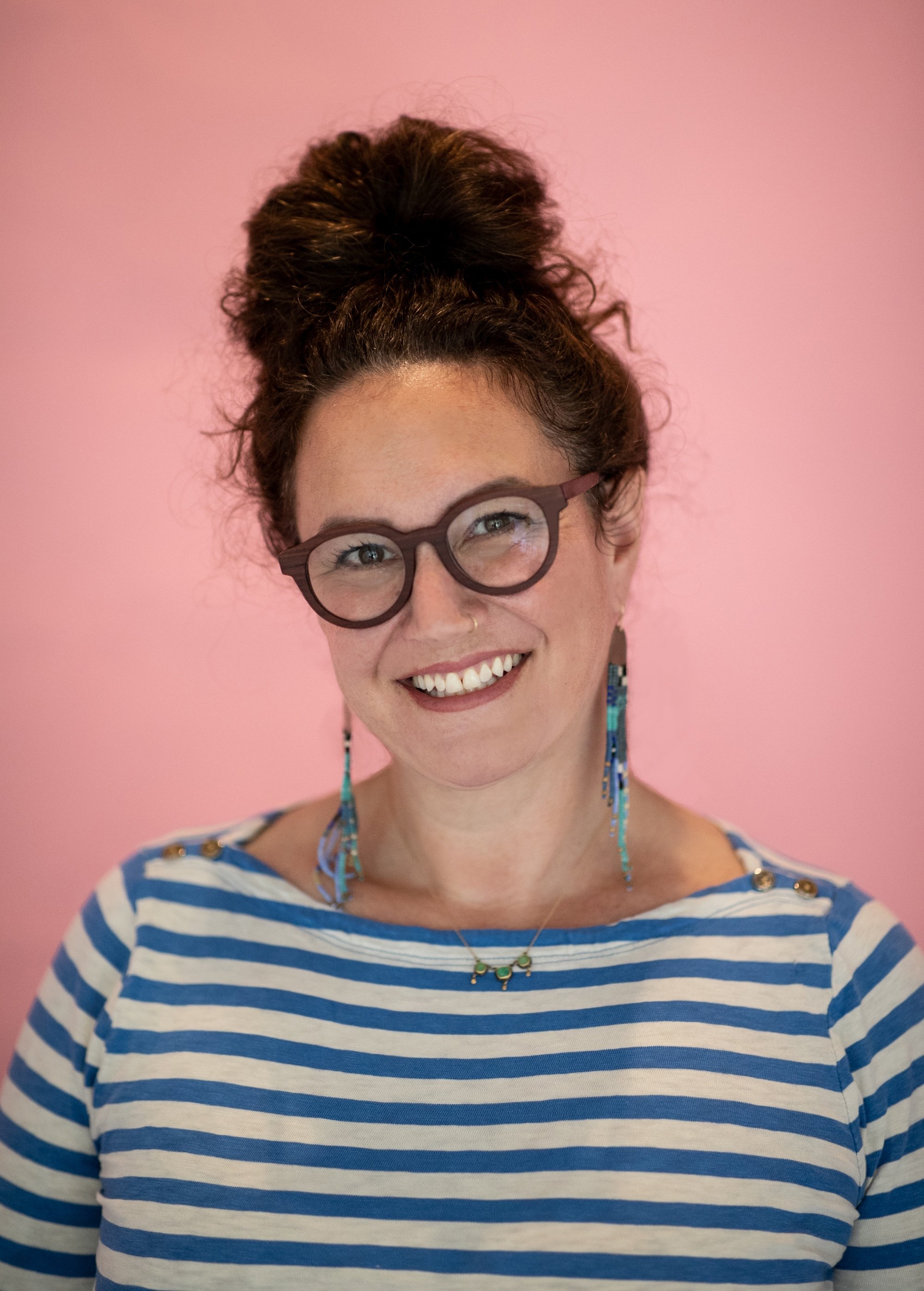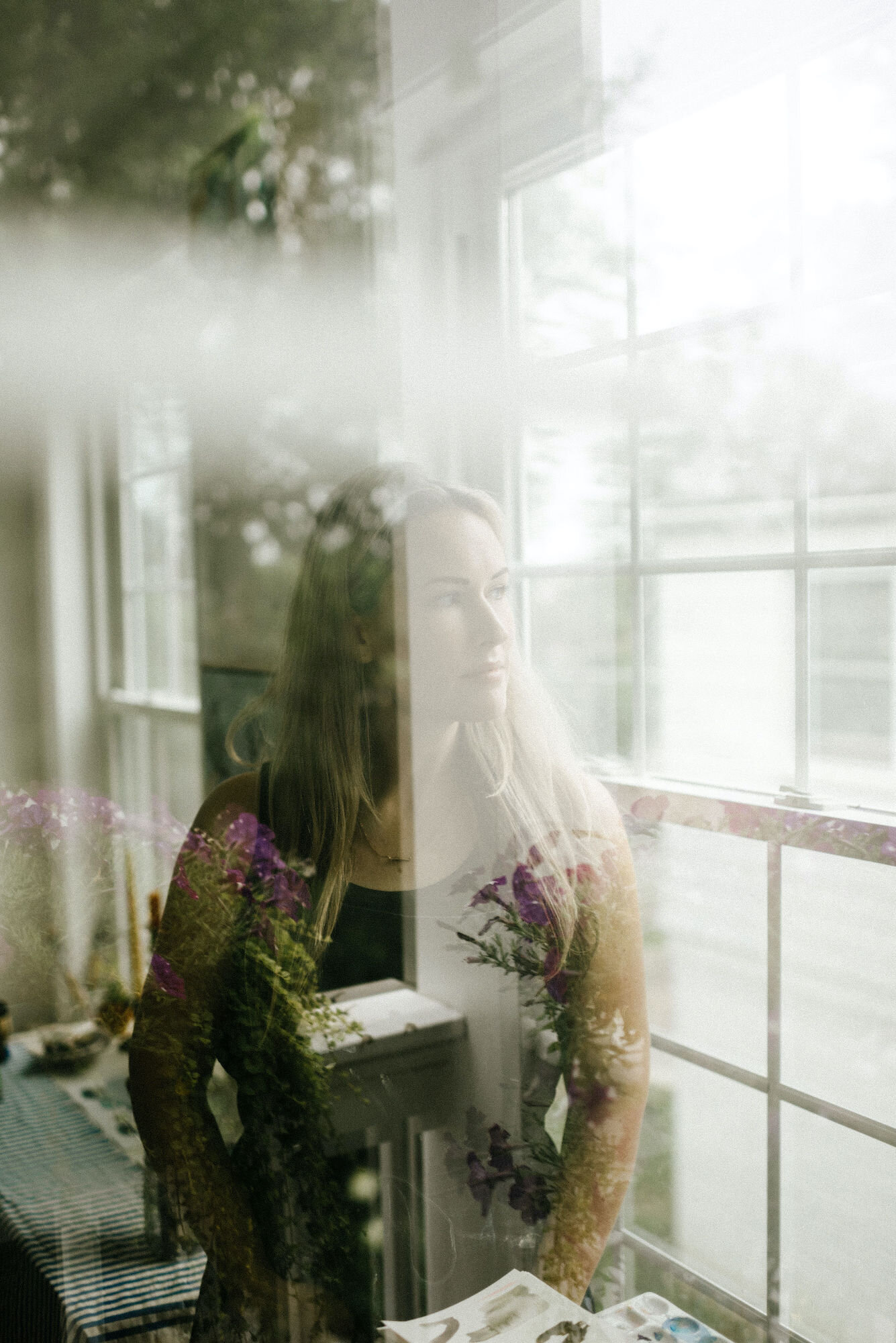The Art of Quitting
Interview by Jennifer Cooper
“Our culture is obsessed with building and growing, but we have so few resources for how to dismantle, walk away, or endure the in-between.”
Emily McDowell has successfully started many things, including a beloved stationery company named after her. But she noticed something when she stopped being “Emily McDowell the brand” and started becoming “Emily McDowell the person” again. While our culture has lots of roadmaps for “success” we don’t have any for walking away from it. It seems like quitting is one of those taboo subjects we don’t like talking about.
Which is probably what made the topic so interesting to the artist who created a line of greetings cards for all the things Hallmark doesn’t say. Like an awkward sympathy card that begins, Well, this just sucks.
So, she’s started a podcast with her friend Holly Whitaker called Quitted. It’s an exploration of the practice of letting go. It’s the right podcast at the right time as we collectively question our careers, boundaries, and relationships.
I asked Emily here to talk about her new podcast, her favorite quitting story, and what she hopes to quit next.
Tell me about the inspiration behind the podcast?
In February 2021, my co-host Holly Whitaker reached out to me via Instagram (we'd followed each other for some time, but weren't yet friends) because she was early in the process of leaving the company she'd built. She'd seen me, via Instagram, take a big step back from the company I'd founded, which like hers, was also very personal (mine even had my name on it!) and she thought I might be able to relate to what she was going through. She was right.
As we spent the next several months becoming actual friends—not just social media friends—we talked a lot about quitting, which began with the specifics of our own stories, but quickly grew beyond that as we started asking questions. Our culture is obsessed with building and growing, but we have so few resources for how to dismantle, walk away, or endure the in-between. There’s no road map for relinquishing an identity, or giving up on a dream you swore you’d always want, or disappointing the people invested in your staying, or navigating the place between no longer and not yet, and all the other stuff that happens when you quit something. Culturally, we love a redemption story—quitting on the way to a greater success, also known as "failure porn," but this leaves out so much; what if there's value in quitting, in and of itself? What happens when we redefine success for ourselves? We wanted to start this podcast in order to talk about all this.
read +
Visitors to Mary Gaspar’s digital art gallery are greeted with a quote from Patti Smith: “We go through life. We shed our skins. We become ourselves.” This not only sets the mood, it’s a way to understand Mary’s art. It's also a way to understand her sobriety. In this raw conversation, Mary shares her experience after shedding alcohol and becoming her truest self. [con’t…]
photo: Lyndsey Yeomans
What do you hope listeners get out of it?
Our goal is to give listeners both insight and permission to make changes in their own lives; normalize the groundless, liminal space that comes after a transition; and help create a roadmap for folks who are seeking the courage to risk everything to find a truer north. We hope listeners can find elements of their own stories in our conversations, even if the source is unexpected—we've had more than a few people write us about our first episode with Caleb Campbell (who quit the NFL), saying some variation of, "I didn't think I'd like this because I couldn't imagine having anything in common with a former military officer who played professional football, but I was so wrong!" And I love that.
Quitted isn’t just about the stories of people who’ve had the courage to walk away; it’s also a lens from which to view our current culture, what we value, and how that is quickly shifting in a post-pandemic reality. We'll also be learning from experts along with our listeners; we'll be talking with authors, journalists, and others who can help explain things like how we got here as a culture, different ways to frame transitions, and how a shifting narrative around giving up could be the key to a different future.
“Culturally, we love a redemption story—quitting on the way to a greater success, also known as ‘failure porn,’ but this leaves out so much; what if there’s value in quitting, in and of itself?”
Favorite quitting story you’ve heard?
On the first Liz Gilbert episode of Quitted, she tells the story of how she came to write Eat, Pray, Love. She was a journalist at GQ, in an absolute dream job, and she had an intuitive knowing that she needed to quit her job in order to write this book. So she quits, and a week later, she gets a call offering her the same job at The New Yorker, which has literally been her dream since she was twelve. The editor-in-chief took her out to lunch and she turned the job down; she told him she was going to go on a trip and write a memoir, and he was like "you're nuts," and everyone in her life was like "you're nuts." And she did it anyway, and we all know what happened. The thing I love about this story is that as hard as it is to leave a terrible or toxic situation, I think it can sometimes be even harder to quit something that's technically successful / working well for you, or quit something that other people want for you or from you, in order to follow an inner knowing that only you can understand.
Something you wished you quit sooner?
My ad agency career. I spent nearly a decade working in advertising before finally quitting in 2012, and I was pretty unhappy from like, year two onward. I kept thinking it would get better once I got a different job, or worked for a different person, or got promoted, or worked on a different account, but ultimately, after making a million different changes (and even switching roles from art director to copywriter!) I had to take a real look at my career arc, and realize the one thing all my experiences had in common was me. It wasn't the right business for me, even though I was decent at it and it took a lot of hard work to get there, which are both factors I used to justify staying as long as I did.
And finally, what do you hope to quit next?
Fear! This feels sort of like a silly answer, because duh, but when I was younger, I was pretty good at living according to my intuition (save the ad agency career). I've made a lot of life choices that I knew intuitively were right for me, but that my family and a lot of my friends absolutely didn't understand. As I've hit middle age (perhaps because I feel like I have more to lose?) I've noticed a tendency to disproportionately lean on logic when making decisions, as a way to try and keep myself safe. I still want logic to be one of the tools I use, but not the primary one, and in order to do that, I need to quit allowing fear to govern my choices.
Quitted is listener supported. Listen for free on apple podcasts and audible and support it on Patreon at patreon.com/quitted.


